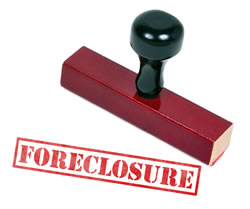Making an offer on REO property or a foreclosure in Oklahoma City?
Just as with any property purchase, your smartest move is to hire a professional real estate agent.
What's an REO?
"REO" is Real Estate Owned. These are houses which have completed the foreclosure process and are currently held by the bank or mortgage company. This is not the same as real estate up for foreclosure auction.

When buying a property during a foreclosure sale, you must pay at least the loan balance plus any interest and other fees amassed during the foreclosure process. You must also be ready to pay with cash in hand. And on top of all that, you'll receive the property 100% as is. That possibly may involve prevailing liens and even current occupants that need to be evicted.
A bank-owned property, on the other hand, is a much neater and attractive option. The REO property didn't find a buyer during foreclosure auction. Now the lender owns it. The bank will deal with the removal of tax liens, evict occupants if needed and generally organize for the issuance of a title insurance policy to the buyer at closing.
Take notice that REOs may be exempt from normal disclosure requirements.
For example, in California, banks do not have to give a Transfer Disclosure Statement,
a document that normally requires sellers to reveal any defects they are knowledgeable of.
By hiring a la mode, you can rest assured knowing all parties are fulfilling Oklahoma state disclosure requirements.
Is REO property in Oklahoma City a bargain?
It's occasionally thought that any REO must be a bargain and an opportunity for easy money. This frequently isn't true. You have to be cautious about buying a repossession if your intent is to make a profit. While it's true that the bank is typically anxious to offload it promptly, they are also looking to minimize any losses.
 Look carefully at the listing and sales prices of comparable properties in the neighborhood when making an offer on an REO. And factor in any repairs or upgrades necessary to prepare the house for resale or moving in.
It is possible to find REOs with money-making potential, and many people do very well flipping foreclosures. But, there are also many REOs that are not good buys and may lose money.
Look carefully at the listing and sales prices of comparable properties in the neighborhood when making an offer on an REO. And factor in any repairs or upgrades necessary to prepare the house for resale or moving in.
It is possible to find REOs with money-making potential, and many people do very well flipping foreclosures. But, there are also many REOs that are not good buys and may lose money.
Time to make an offer?
Most mortgage companies have a department dedicated to REO that you'll work with when buying REO property from them. Normally the REO department will use a listing agent to get their REO properties listed on the local MLS.
Prior to making your offer, you'll want to contact either the listing agent or REO department at the bank and learn as much as you can about their knowledge regarding the condition of the property and what their process is for receiving offers. Since banks most commonly sell REO properties "as is", you may want to include an inspection contingency in your offer that gives you time to check for unseen damage and terminate the offer if you find it.
If, as a buyer, you can provide documentation showing your ability to secure financing, such as a pre-approval letter from a lender, your offer will be more attractive and likely be accepted. (This is generally true for any type of real estate offer.)
After you've made your offer, it's customary for the bank to counter offer. At this point it will be up to you to decide whether to accept their counter, or submit another counter offer.
Your deal might be settled in a single day, but that's usually not the case. Since offers and counter offers usually give the other party a day or longer to respond (and employees at a bank don't work nights or weekends) you could be looking at a week or longer.